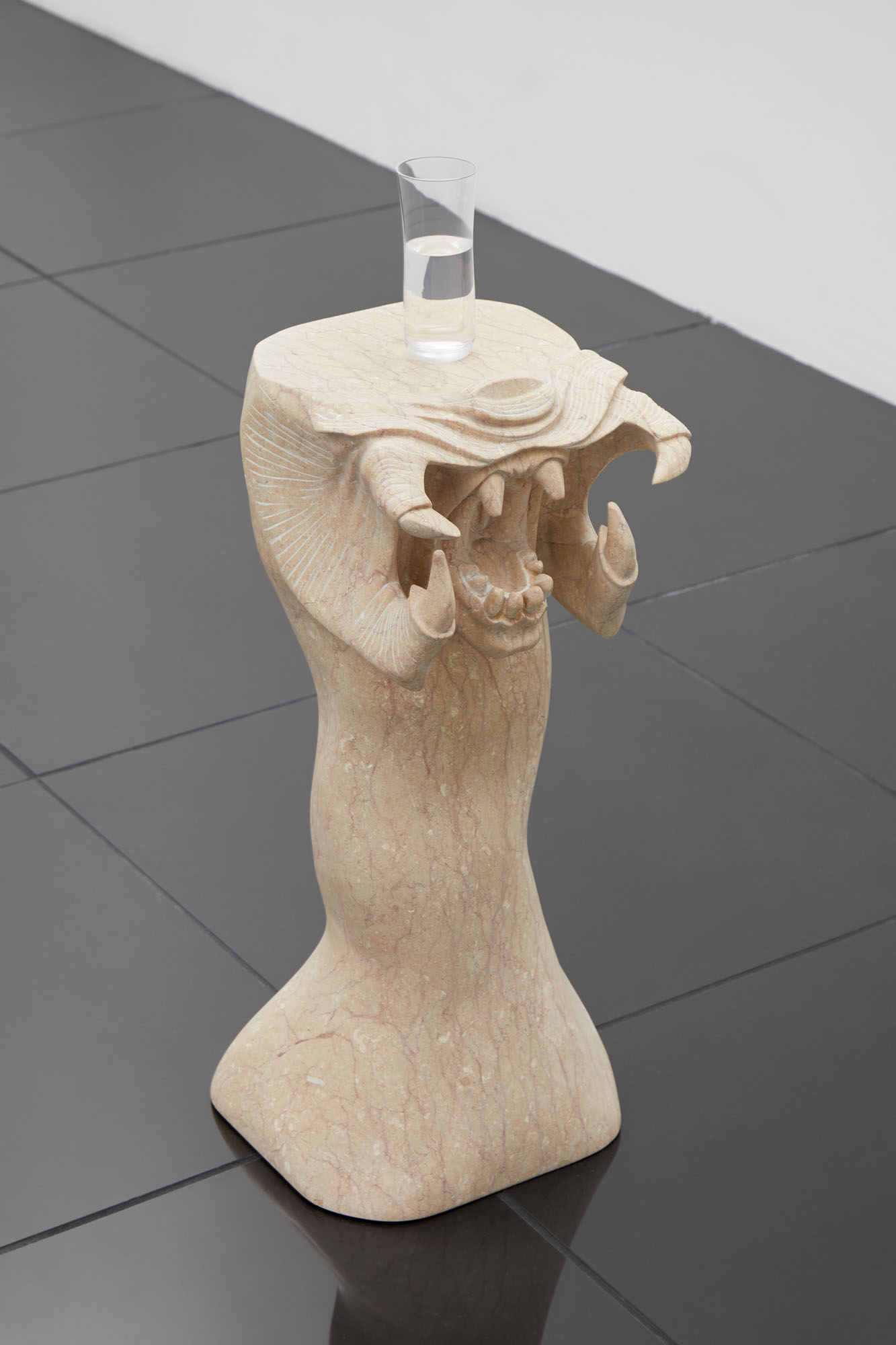Having relocated from the financially constraining metropolis of New York City to a large live/work studio on the countryside outside Lisbon, Dozie Kanu works in a spiritual way, sculpting objects in the isolation of the warm rural setting. Of Nigerian heritage, Kanu is a first-generation American raised in Houston, and traces black histories and personal identity, clashing the contemporary against the colonial, rethinking the usefulness of his work to “inform new aesthetics”.
In Transformer, Kanu makes us witness to the corrosive, transformative and redemptive power of his works that repel the sense of being reduced to their perceptible utility. Sourcing various found materials from solar water pumps, drilling rods, anti-climb spikes, and antique West African sculptures, Kanu’s assemblages clash identities with form and function driving the artist’s highly poetic practice. Shrink-wrap printed with dozens of album covers produced by the graphic design studio Pen & Pixel, which Kanu credits for playing a role in developing the aesthetic language of the Southern United States, become unrecognizable as they wrap around his assemblage surfaces creating a their own pattern.
Arriving back at his roots in set design for film and theater, he creates a built environment for his sculpture: a viewing gallery, in which we see a staged choreography, where spiritual, religious and sculptural symbolism wrestle with domestic and industrial minimalism, layering complex tensions between the personal, social, historical and pop cultural. The set itself is loosely inspired by a scene from the film Belly by Hype Williams, considered by Kanu to be one of the greatest visual achievements in Black cinema, emulating the stark atmosphere from the main character’s house in order to transcend the limited aspirational images of Black achievement seen in media.
There is a shape-shifting dialogue between a Western lineage of furniture design and a resistance to conform to shapes and forms that are understandable, fixed, and own-able. A sand pendulum swings between binaries, embodying our polarized political climate and making visible invisible magnetic forces beyond our vision or control.
